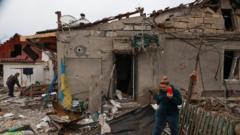**The International Atomic Energy Agency's recent censure of Iran for noncompliance with nuclear monitoring obligations could trigger renewed sanctions, escalating tensions surrounding its nuclear ambitions.**
**U.N. Agency Penalizes Iran for Nuclear Program Obstruction**

**U.N. Agency Penalizes Iran for Nuclear Program Obstruction**
**International Atomic Energy Agency issues censure, warns of potential sanctions against Tehran amid rising uranium enrichment.**
The International Atomic Energy Agency (IAEA) took a decisive step on Thursday by censuring Iran for its lack of cooperation with international nuclear oversight protocols. This censure could pave the way for economic sanctions against Tehran, which has increasingly restricted foreign access to its uranium enrichment operations in violation of the Nuclear Nonproliferation Treaty.
The decision was made during a Board of Governors’ meeting where the count was 19 in favor of the censure, with just 3 votes against it and 12 abstentions. The proposal was spearheaded by Western powers, including the UK, France, Germany, and the United States, despite extensive lobbying from Iran aimed at dissuading board members from passing the resolution.
Iran’s Foreign Minister, Abbas Araghchi, attempted to sway several countries such as Brazil and South Africa, arguing against the proposed censure. In response to the resolution's approval, he threatened Iran would accelerate its uranium enrichment activities to near weapons-grade levels, effectively ignoring appeals for restraint.
The IAEA's action reflects growing concerns among Western nations regarding Iran's clandestine nuclear activities and its repeated refusal to address inquiries from the agency regarding its nuclear program. The backdrop to this escalating situation is not only Iran's nuclear ambitions but also the anticipated return of Donald J. Trump to the presidency, which could again change the landscape of U.S. foreign policy and approaches to nuclear non-proliferation in the region.
The decision was made during a Board of Governors’ meeting where the count was 19 in favor of the censure, with just 3 votes against it and 12 abstentions. The proposal was spearheaded by Western powers, including the UK, France, Germany, and the United States, despite extensive lobbying from Iran aimed at dissuading board members from passing the resolution.
Iran’s Foreign Minister, Abbas Araghchi, attempted to sway several countries such as Brazil and South Africa, arguing against the proposed censure. In response to the resolution's approval, he threatened Iran would accelerate its uranium enrichment activities to near weapons-grade levels, effectively ignoring appeals for restraint.
The IAEA's action reflects growing concerns among Western nations regarding Iran's clandestine nuclear activities and its repeated refusal to address inquiries from the agency regarding its nuclear program. The backdrop to this escalating situation is not only Iran's nuclear ambitions but also the anticipated return of Donald J. Trump to the presidency, which could again change the landscape of U.S. foreign policy and approaches to nuclear non-proliferation in the region.





















